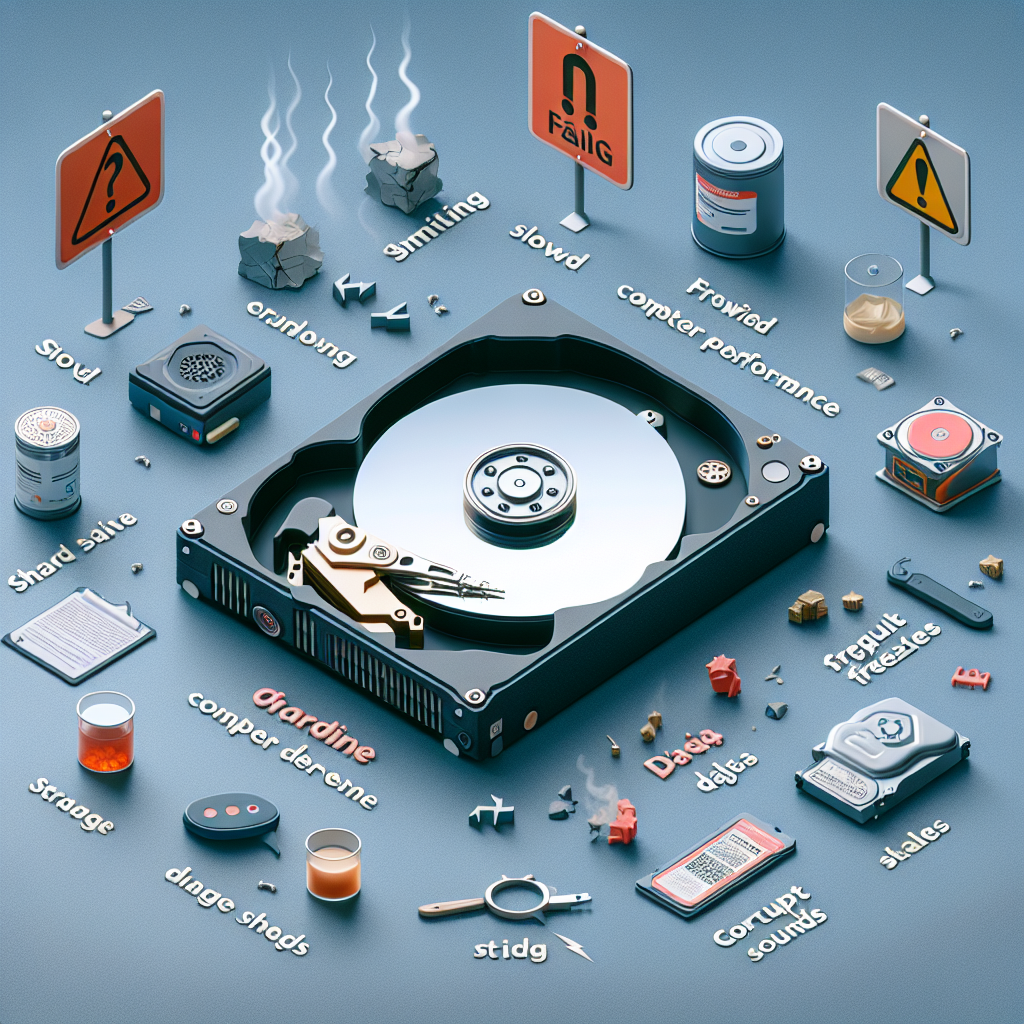Introduction
A hard drive is a critical component of your computer, serving as the primary storage for your operating system, applications, and personal data. However, like all mechanical devices, hard drives can fail over time. Recognizing the early signs of a failing hard drive can prevent data loss and downtime. In this article, we’ll explore the common indicators that your hard drive may be on the verge of failing.
Unusual Noises
One of the most noticeable signs of a failing hard drive is the presence of unusual noises. These can include clicking, grinding, or whirring sounds that are not typically part of normal hard drive operation.
- Clicking Sounds: Repeated clicking noises often indicate that the hard drive’s read/write heads are having difficulty accessing the disk platters.
- Grinding Noises: Gritty or grinding sounds may suggest mechanical wear and tear within the hard drive.
- Whirring Sounds: A persistent whirring noise could indicate motor or spindle issues.
Frequent Crashes and Freezes
If your computer experiences frequent crashes, freezes, or blue screens of death (BSOD), it could be a result of hard drive problems. A failing hard drive may struggle to read essential system files, causing instability and unexpected shutdowns.
Slow Performance
A significant slowdown in your computer’s performance can be a sign of a deteriorating hard drive. If applications take longer to open, files take more time to save, or the system overall becomes sluggish, it might be due to the hard drive struggling to keep up with data requests.
Corrupted or Missing Files
Data corruption or the sudden disappearance of files can indicate that your hard drive is failing. Corrupted files may not open correctly, while missing files could signify that the hard drive is unable to retrieve data consistently.
Bad Sectors
Bad sectors are sections of the hard drive that have become damaged and are no longer reliable for data storage. If your system frequently reports bad sectors, it’s a clear sign that the hard drive is deteriorating.
Operating System Issues
Problems booting your operating system or frequent errors related to system files can be linked to a failing hard drive. If your computer struggles to start up or shows persistent errors, it may be time to check the hard drive’s health.
SMART Errors
Self-Monitoring, Analysis, and Reporting Technology (SMART) is a monitoring system included in most modern hard drives. If SMART reports errors or predicts impending failure, it’s a strong indicator that the hard drive needs attention or replacement.
Overheating
Excessive heat can accelerate hard drive failure. If your hard drive is running hotter than usual, it could be a sign of impending failure due to thermal stress affecting the drive’s components.
Backup Plans and Prevention
Recognizing the signs of a failing hard drive is crucial, but it’s equally important to take proactive measures to protect your data:
- Regular Backups: Ensure that you regularly back up your data to external drives or cloud storage services.
- Monitor Hard Drive Health: Use diagnostic tools to monitor the health of your hard drive and catch issues early.
- Maintain Proper Ventilation: Keep your computer well-ventilated to prevent overheating.
- Replace Aging Drives: If your hard drive is several years old, consider replacing it before signs of failure emerge.
Conclusion
A failing hard drive can lead to significant data loss and disrupt your workflow. By staying vigilant and recognizing the common signs of hard drive failure, you can take timely action to safeguard your data and maintain your computer’s performance. Regular maintenance and proactive monitoring are key to preventing unexpected hard drive failures.

Leave a Reply